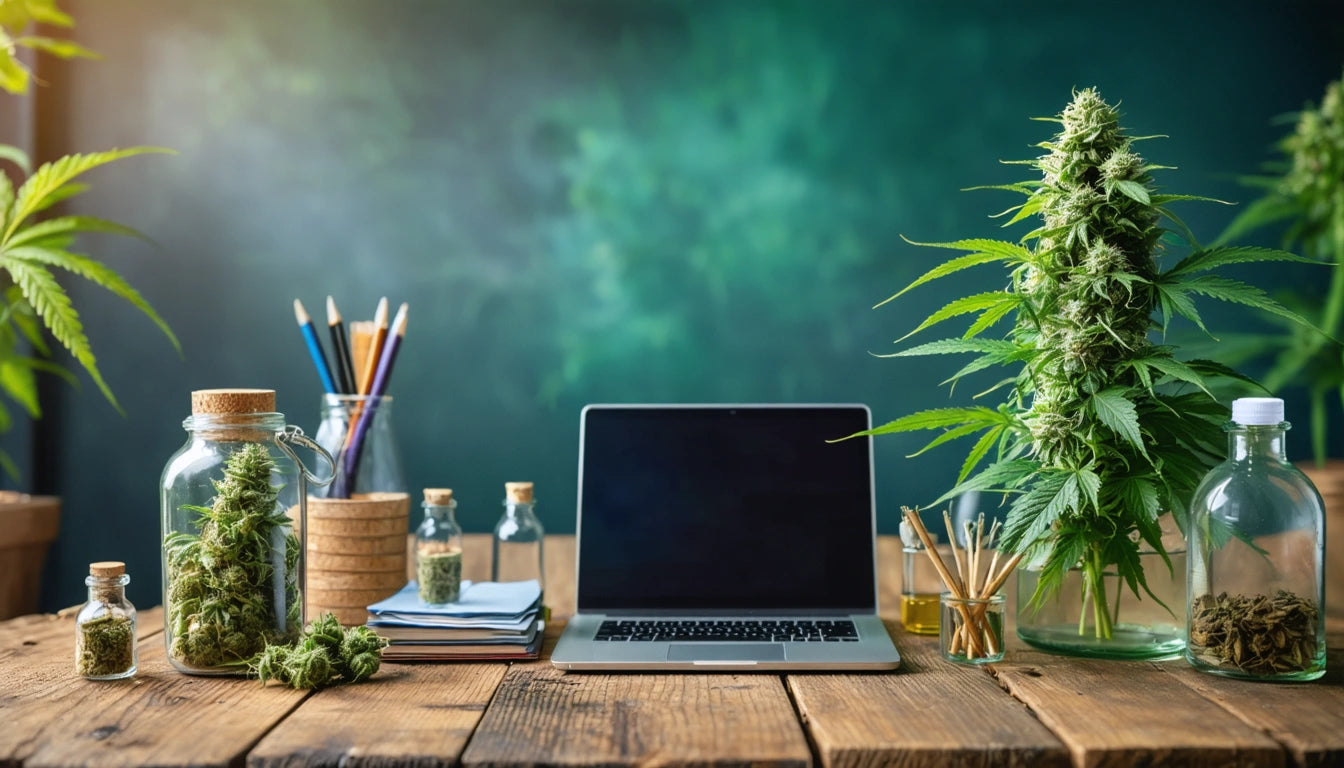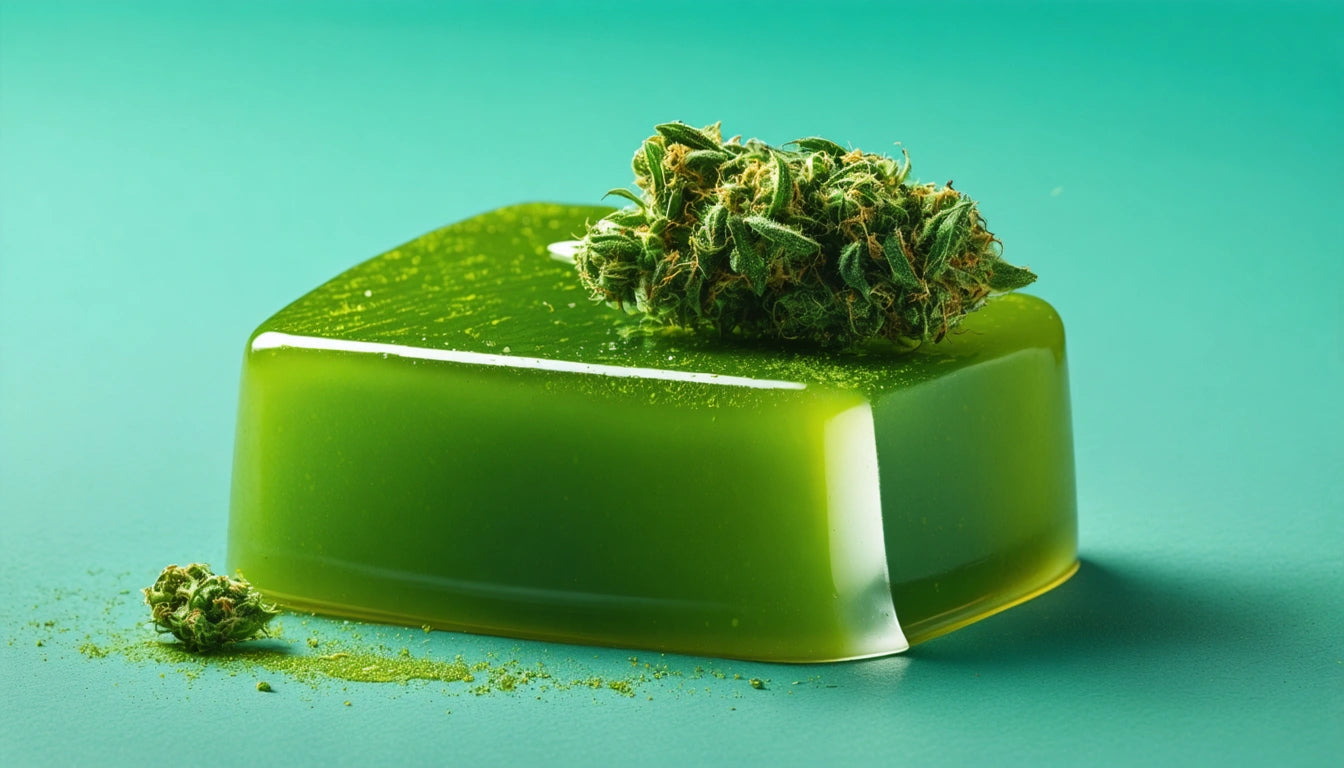Table of Contents
Can CBD Help with Anxiety, Depression, and Overall Well-Being?
As mental health awareness grows, many individuals are exploring alternative treatments for conditions like anxiety and depression. Cannabidiol (CBD), a non-psychoactive compound derived from the cannabis plant, has emerged as a potential option. This article examines the current evidence on whether CBD can help with anxiety, depression, and overall well-being.
Understanding CBD: Properties and Functions
CBD is one of over 100 cannabinoids found in cannabis plants. Unlike tetrahydrocannabinol (THC), CBD does not produce intoxicating effects. Instead, it interacts with the endocannabinoid system (ECS), a complex cell-signaling system that plays a role in regulating mood, sleep, appetite, and stress response.
The ECS contains two primary receptors: CB1 and CB2. While THC binds directly to CB1 receptors, CBD works indirectly, influencing the system without binding directly to these receptors. This difference explains why CBD doesn't cause the "high" associated with cannabis use.
CBD and Anxiety: Current Research and Evidence
Research examining if CBD can help with anxiety has shown promising results. A 2019 study published in The Permanente Journal found that 79.2% of participants reported decreased anxiety scores after CBD treatment. The study involved 72 adults, with anxiety scores declining within the first month and remaining decreased during the study duration.
CBD may help reduce anxiety through several mechanisms:
- Increasing serotonin receptor signaling, similar to how selective serotonin reuptake inhibitors (SSRIs) work
- Reducing activity in the amygdala, the brain region associated with fear responses
- Promoting neurogenesis in the hippocampus, which may help reduce anxiety
While these findings are promising, it's important to note that many studies use higher doses than typically found in commercial products. When considering CBD products for anxiety relief, consistency and quality matter significantly.
CBD and Depression: Potential Benefits and Limitations
The question of whether CBD helps depression is more complex. Preclinical animal studies show antidepressant-like effects, but human research remains limited. CBD's potential antidepressant properties may stem from its ability to:
- Influence serotonin levels, similar to conventional antidepressants
- Reduce inflammation, which some research links to depression
- Promote neuroplasticity and neurogenesis
A 2018 review in Frontiers in Immunology suggested that CBD's anti-inflammatory and immunomodulatory properties might benefit various conditions, including depression. This aligns with research exploring if CBD helps with other physiological functions like appetite regulation and metabolism.
When evaluating if CBD can help depression, it's crucial to recognize that depression is a complex condition often requiring comprehensive treatment approaches. CBD might serve as a complementary option rather than a standalone solution.
Choosing Effective CBD Products for Mental Health
For those considering CBD for anxiety or depression, product selection matters significantly. The best CBD for depression and anxiety symptoms should meet several criteria:
- Third-party testing for potency and purity
- Clear labeling of CBD content
- Minimal additional ingredients
- Appropriate delivery method for your needs
Full-spectrum products contain multiple cannabinoids, including trace amounts of THC (under 0.3%), while broad-spectrum options provide multiple cannabinoids without THC. Isolates contain only CBD. Some research suggests the "entourage effect" from multiple cannabinoids working together may enhance therapeutic benefits.
When packaging these products for commercial distribution, precise dosing becomes crucial. Our automated filling equipment solutions help manufacturers ensure consistent CBD levels across product batches, addressing a common concern in the industry about dosage reliability.
Dosage Considerations and Administration Methods
When exploring if CBD helps with depression and anxiety, dosage plays a critical role. Starting with a low dose and gradually increasing allows individuals to find their optimal level. Common administration methods include:
- Oils and tinctures: Offer flexible dosing and relatively quick onset
- Capsules: Provide consistent dosing and convenience
- Edibles: Longer-lasting effects but slower onset
- Vaping: Fastest onset but shorter duration
Research suggests that CBD's effects on anxiety may follow a bell-shaped response curve, where moderate doses prove more effective than very low or very high amounts. For depression, optimal dosing remains less clear due to limited human studies.
CBD may also influence other aspects of health that impact mental well-being. Studies examining whether CBD affects blood pressure suggest potential cardiovascular benefits that could indirectly support overall well-being.
Future Directions in CBD Mental Health Research
As interest in whether CBD weed helps with depression and anxiety continues to grow, research is expanding. Current limitations include:
- Small sample sizes in many studies
- Varying methodologies making comparisons difficult
- Limited long-term safety data
- Inconsistent product quality in commercial markets
Future research will likely focus on identifying optimal dosing protocols, understanding CBD's mechanisms of action, and conducting larger clinical trials. Questions about whether CBD helps the immune system and other bodily functions may also provide insights into its overall health benefits.
For individuals considering CBD for anxiety or depression, consulting healthcare providers remains essential, particularly for those taking other medications. While preliminary evidence suggests CBD may offer benefits for some mental health conditions, it works best as part of a comprehensive approach that may include therapy, lifestyle modifications, and in some cases, conventional medications.
As research progresses, our understanding of CBD's potential to help with anxiety, depression, and overall well-being will continue to evolve, potentially opening new avenues for mental health support.











Leave a comment
All comments are moderated before being published.
This site is protected by hCaptcha and the hCaptcha Privacy Policy and Terms of Service apply.